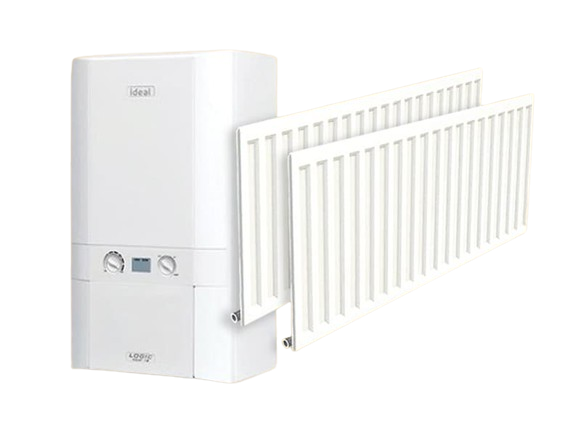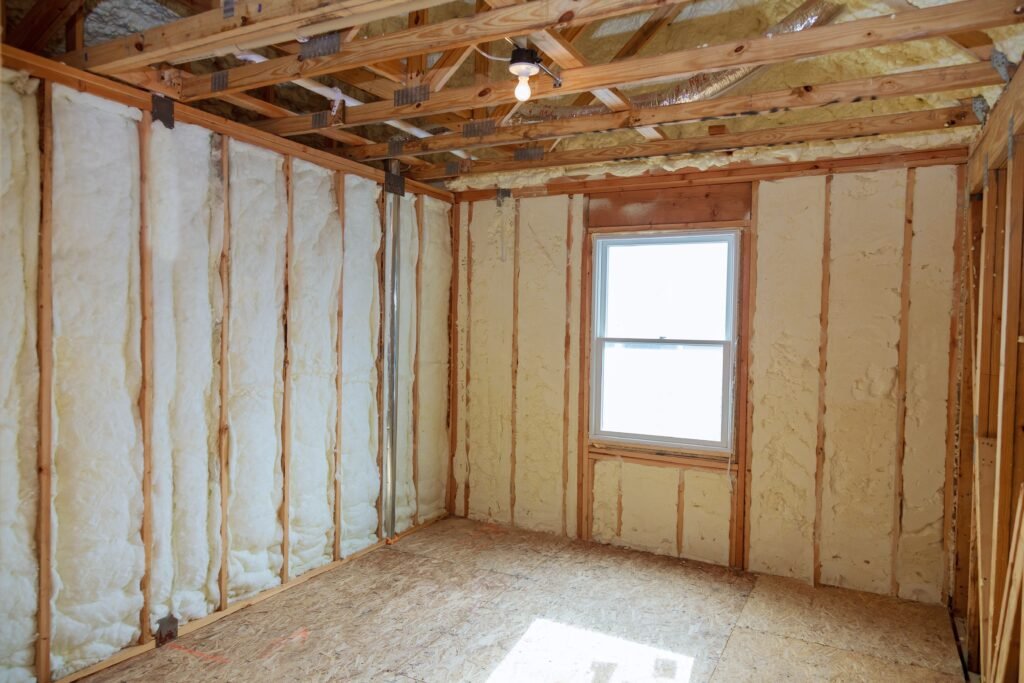Everythng You Need To Know About ECO4 grants 2024 are a valuable resource for homeowners and renters looking to save money on their energy bills.
Understanding ECO4 Grants
These grants are specifically designed to promote energy-efficient practices and help individuals reduce their energy consumption. By implementing energy-efficient upgrades, you can not only lower your utility bills but also contribute to a greener and more sustainable future.
With ECO4 grants, the government provides financial assistance to support the implementation of energy-efficient measures in residential properties. These grants aim to encourage homeowners and renters to make eco-friendly choices by offering funding for insulation, boiler upgrades, and other energy-saving initiatives.
By taking advantage of these grants, you can access funds that will offset the cost of making your home more energy-efficient. This means you can invest in improvements such as better insulation or a more efficient boiler without having to bear the full financial burden yourself.
Energy-efficient grants like ECO4 play a crucial role in helping individuals adopt sustainable practices while also enjoying long-term cost savings. By reducing your energy consumption, you not only contribute to environmental conservation but also benefit from lower monthly utility bills.
What are ECO4 Grants?
ECO4 grants are government-funded initiatives aimed at promoting energy-efficient practices and reducing carbon emissions. These grants provide financial assistance to homeowners and renters who wish to make energy-saving upgrades in their homes. The primary purpose of ECO4 grants is to encourage individuals to adopt eco-friendly measures that can lead to significant cost savings in the long run.
By implementing energy-efficient practices, you can reduce your energy consumption, lower your utility bills, and contribute to a more sustainable environment. ECO4 grants cover a wide range of improvements, including insulation upgrades, boiler replacements, and heat pump installations. These upgrades not only enhance the comfort of your home but also help minimize heat loss and optimize energy usage.
Eligibility and Application Process
To be eligible for ECO4 grants, certain criteria must be met. Generally, these grants are available to homeowners and tenants living in privately owned or rented properties. The eligibility requirements may vary depending on factors such as income level, property type, and location.
To apply for an ECO4 grant, you will need to gather important documents and information. This may include proof of ownership or tenancy agreement, recent utility bills, income statements or benefits documentation (if applicable), and any other supporting documents required by the grant program.
The application process typically involves submitting an online application form or contacting a registered installer who can assist you with the process. It is essential to carefully review the guidelines provided by the grant program and ensure that all necessary information is accurately provided.
By taking advantage of ECO4 grants, you can access financial support that will significantly offset the costs associated with energy-efficient upgrades. These grants not only make it more affordable for individuals to invest in eco-friendly improvements but also encourage widespread adoption of sustainable practices.
Evaluating Your Energy Consumption
Before embarking on energy-efficient upgrades, it is essential to assess your current energy usage. This evaluation will help you identify areas of energy inefficiency and prioritize the most effective measures to reduce your energy consumption.
To assess your energy usage, start by examining your utility bills over the past year. Look for patterns in your energy consumption and note any significant fluctuations. You can also use online tools or smartphone apps provided by utility companies to track your energy usage in real-time.
In addition to reviewing your bills, consider conducting a home energy audit. This comprehensive assessment involves inspecting various aspects of your home’s energy performance, such as insulation levels, air leaks, and appliance efficiency. You can hire a professional auditor or perform a DIY audit using guidelines available from reputable sources.
During the audit, pay attention to areas where energy may be wasted. Common culprits include poorly insulated walls and attics, drafty windows and doors, outdated appliances, and inefficient heating or cooling systems. Identifying these inefficiencies will help you target specific areas for improvement.
Calculating Potential Energy Savings
Once you have assessed your current energy usage and identified areas for improvement, it’s time to calculate the potential energy savings that can be achieved through various upgrades. Several tools and techniques are available to estimate these savings accurately.
Energy calculators provided by government agencies or reputable organizations allow you to input data about your home’s characteristics and proposed upgrades. These calculators consider factors such as insulation levels, heating systems, lighting fixtures, and appliances to provide an estimate of potential savings in terms of both energy consumption reduction and cost reduction.
Understanding the financial impact of energy-efficient upgrades is crucial when evaluating their feasibility. In addition to reducing your carbon footprint and contributing to environmental
conservation, these upgrades can lead to substantial long-term cost savings through reduced utility bills.
By assessing your current energy usage and calculating potential savings from different upgrades, you can make informed decisions about which measures will yield the greatest benefits in terms of reducing energy consumption while maximizing cost savings.
Common Energy Inefficiencies
Identifying common areas of energy waste is crucial when it comes to reducing energy consumption and maximizing the benefits of energy-efficient practices. By pinpointing these inefficiencies, you can take targeted actions to address them and make your home more energy-efficient.
One common area of energy waste is inadequate insulation. Poorly insulated walls, roofs, and floors allow heat to escape during the winter and enter during the summer, leading to increased heating and cooling costs. Drafty windows and doors also contribute to energy inefficiency by allowing air leaks.
Another common culprit is outdated or inefficient appliances. Older models of refrigerators, washing machines, dishwashers, and other household appliances consume more energy compared to their modern counterparts. Upgrading to energy-efficient appliances can significantly reduce your electricity usage.
Inefficient heating and cooling systems are also major contributors to energy waste. Outdated boilers or furnaces may not operate at optimal efficiency, resulting in higher energy consumption. Similarly, air conditioning units that are not properly maintained or sized for your space can lead to excessive electricity usage.
Conducting a Home Energy Audit
Conducting a thorough home energy audit is an effective way to identify specific areas where your home may be losing energy. A comprehensive audit involves inspecting various aspects of your property’s energy performance.
You can start by examining the insulation levels in your walls, attic, and floors. Look for gaps or signs of wear that may indicate inadequate insulation. Check for air leaks around windows, doors, electrical outlets, and plumbing fixtures using a smoke pencil or thermal imaging camera.
Assess the efficiency of your heating and cooling systems by inspecting filters, ductwork, and thermostats. Consider hiring a professional HVAC technician to perform maintenance tasks such as cleaning coils or checking refrigerant levels.
Once you have completed the audit, analyze the results to prioritize which areas need immediate attention. Focus on addressing the most significant sources of energy waste first before moving on to other improvements.
By pinpointing common areas of energy inefficiency through a home energy audit, you can develop an actionable plan for reducing your overall energy consumption while maximizing cost savings.
Understanding the ECO4 Grant Application
To successfully navigate the ECO4 grant application process, it is essential to have a clear understanding of how it works and what is required. Familiarizing yourself with the application process will help ensure that you meet all necessary deadlines and submission requirements.
The first step in applying for an ECO4 grant is to gather all relevant information and documentation. This may include proof of ownership or tenancy, recent utility bills, income statements or benefits documentation (if applicable), and any other supporting documents specified by the grant program.
Next, carefully review the guidelines provided by the grant program. These guidelines will outline important details such as eligibility criteria, eligible energy-efficient measures, funding limits, and any specific requirements for contractors or installers.
Pay close attention to deadlines for submitting your application. Missing these deadlines could result in your application being rejected or delayed. It’s also important to ensure that you provide accurate and complete information on your application form.
Tips for a Successful Application
When applying for ECO4 grants, there are several key factors to consider to increase your chances of success:
-
- Research: Take the time to research available grants and understand their specific requirements. This will help you identify which grants align with your needs and eligibility criteria.
-
- Plan Ahead: Start planning your energy-efficient upgrades early so that you have ample time to gather necessary documents and complete the application process before deadlines.
-
- Seek Professional Assistance: Consider consulting with registered installers or professionals who can guide you through the application process and ensure compliance with all requirements.
-
- Be Thorough: Double-check your application form for accuracy and completeness before submission. Provide all requested information and supporting documents as required.
-
- Avoid Common Mistakes: Common mistakes in grant applications include incomplete forms, missing signatures, inaccurate measurements, or failure to provide necessary documentation. Take care to avoid these errors when completing your application.
By understanding the ECO4 grant application process and following these tips, you can increase your chances of a successful application and secure financial assistance for energy-efficient upgrades in your home.
Improving Energy Efficiency: Insulation and Boiler Upgrades
The Importance of Insulation
Proper insulation plays a crucial role in reducing energy consumption and maximizing the benefits of energy-efficient practices. By effectively insulating your home, you can create a thermal barrier that prevents heat loss during the winter and heat gain during the summer.
One of the key benefits of insulation is its ability to reduce the need for heating and cooling. By minimizing heat transfer through walls, roofs, and floors, insulation helps maintain a comfortable indoor temperature throughout the year. This results in lower
energy usage for heating and cooling systems, leading to significant cost savings on utility bills.
Different types of insulation materials are available, each with its own effectiveness and suitability for specific areas of your home. Common options include fiberglass batts, cellulose, spray foam, and rigid foam boards. Consulting with a professional or conducting research will help you determine which type of insulation is best suited for your needs.
Upgrading Your Boiler 2024
Upgrading your boiler to a more efficient model is another effective way to improve energy efficiency in your home. Older boilers tend to be less efficient, resulting in higher energy consumption and increased costs.
A more efficient boiler can save both energy and money by utilizing advanced technology to optimize fuel combustion. These boilers extract more heat from the same amount of fuel compared to older models, reducing waste and improving overall efficiency.
When choosing a new boiler, consider factors such as fuel type (gas, oil, electric), size requirements based on your heating needs, efficiency ratings (AFUE – Annual Fuel Utilization Efficiency), and any additional features or controls that can enhance performance.
It’s important to note that upgrading your boiler may require professional installation due to safety considerations. Hiring a qualified installer ensures proper installation according to industry standards and regulations.
By taking advantage of government grants for insulation upgrades or financial assistance for boiler upgrades like ECO4 grants or other applicable programs, you can offset the costs associated with these improvements. This makes it more affordable to invest in energy-efficient upgrades and enjoy long-term savings on your energy bills.
Exploring Heat Pump Options for Energy Savings
Heat pumps are energy-efficient heating and cooling systems that work by transferring heat from one area to another. Unlike traditional heating systems that generate heat, heat pumps extract heat from the air, ground, or water sources and distribute it throughout your home.
Heat pumps can provide both heating and cooling functions, making them versatile solutions for year-round comfort. During colder months, they extract heat from the outside air or ground and transfer it indoors to warm your home. In warmer months, the process is reversed, with heat pumps extracting heat from inside your home and releasing it outside to cool the indoor environment.
Using a heat pump for heating and cooling offers several benefits. They are highly efficient since they move existing heat rather than generating it from scratch. This results in lower energy consumption compared to traditional heating and cooling systems. Additionally, heat pumps can dehumidify the air as part of their cooling process, improving indoor air quality and comfort.
Choosing the Right Heat Pump
-
- Size: Ensure that the heat pump is appropriately sized for your space. A professional installer can perform calculations based on factors such as square footage, insulation levels, climate conditions, and desired temperature settings.
-
- Efficiency: Look for a high-efficiency heat pump with a good Seasonal Energy Efficiency Ratio (SEER) rating for cooling efficiency and a Heating Seasonal Performance Factor (HSPF) rating for heating efficiency.
-
- Installation Requirements: Consider whether you have suitable outdoor space for installing an air-source or ground-source heat pump. Ground-source systems require underground loops while air-source systems need sufficient outdoor space for proper airflow.
-
- Maintenance: Understand the maintenance requirements of the chosen heat pump system. Regular maintenance ensures optimal performance and longevity of the unit.
By exploring government grants for central heating upgrades or financial assistance programs like ECO4 grants or other applicable initiatives, you may be able to offset some of the costs associated with installing a new energy-efficient heat pump system in your home.
Maximizing Energy Efficiency with ECO4 Grants
Implementing energy-efficient practices in your home can lead to significant cost savings and contribute to a more sustainable future. ECO4 grants provide valuable financial assistance for energy-efficient upgrades, making it easier for homeowners and renters to reduce their energy consumption and save money.
By taking advantage of ECO4 grants, you can offset the costs associated with insulation upgrades, boiler replacements, heat pump installations, and other energy-saving measures. These grants help make these improvements more affordable and accessible to a wider range of individuals.
Not only do energy-efficient upgrades reduce your carbon footprint and contribute to environmental conservation, but they also offer long-term benefits in terms of lower utility bills. By reducing your energy consumption through insulation improvements, efficient boilers, or heat pumps, you can enjoy ongoing cost savings on your monthly energy expenses.
ECO4 grants are designed to support individuals in their efforts to make their homes more energy-efficient. Whether you are a homeowner or a renter, these grants provide an opportunity to invest in eco-friendly upgrades that will benefit both your wallet and the planet.
Take advantage of ECO4 grants today to maximize your home’s energy efficiency. By reducing your energy consumption and saving money on utility bills, you can create a more comfortable living environment while contributing to a greener future.





